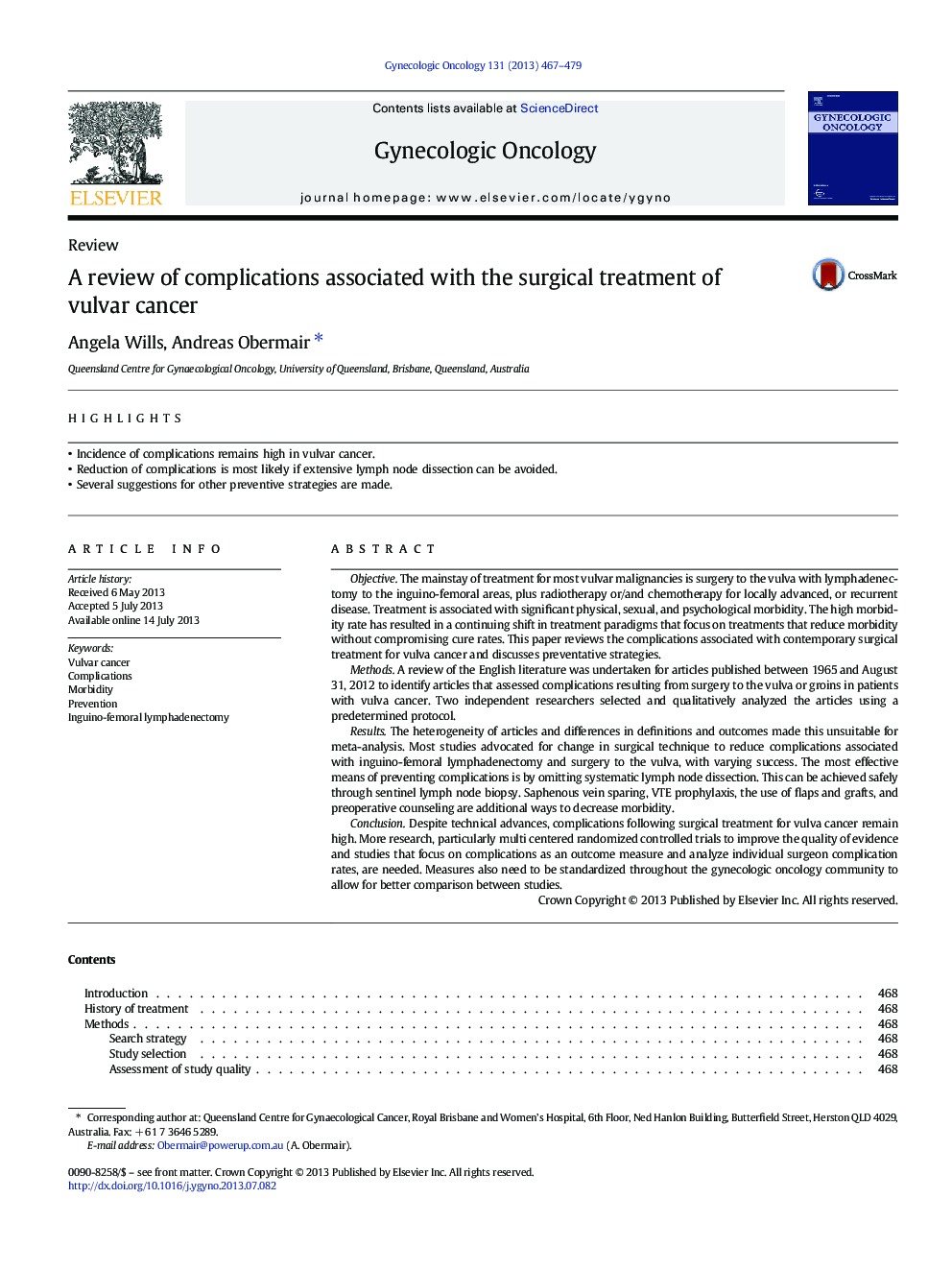| کد مقاله | کد نشریه | سال انتشار | مقاله انگلیسی | نسخه تمام متن |
|---|---|---|---|---|
| 6183704 | 1254111 | 2013 | 13 صفحه PDF | دانلود رایگان |
- Incidence of complications remains high in vulvar cancer.
- Reduction of complications is most likely if extensive lymph node dissection can be avoided.
- Several suggestions for other preventive strategies are made.
ObjectiveThe mainstay of treatment for most vulvar malignancies is surgery to the vulva with lymphadenectomy to the inguino-femoral areas, plus radiotherapy or/and chemotherapy for locally advanced, or recurrent disease. Treatment is associated with significant physical, sexual, and psychological morbidity. The high morbidity rate has resulted in a continuing shift in treatment paradigms that focus on treatments that reduce morbidity without compromising cure rates. This paper reviews the complications associated with contemporary surgical treatment for vulva cancer and discusses preventative strategies.MethodsA review of the English literature was undertaken for articles published between 1965 and August 31, 2012 to identify articles that assessed complications resulting from surgery to the vulva or groins in patients with vulva cancer. Two independent researchers selected and qualitatively analyzed the articles using a predetermined protocol.ResultsThe heterogeneity of articles and differences in definitions and outcomes made this unsuitable for meta-analysis. Most studies advocated for change in surgical technique to reduce complications associated with inguino-femoral lymphadenectomy and surgery to the vulva, with varying success. The most effective means of preventing complications is by omitting systematic lymph node dissection. This can be achieved safely through sentinel lymph node biopsy. Saphenous vein sparing, VTE prophylaxis, the use of flaps and grafts, and preoperative counseling are additional ways to decrease morbidity.ConclusionDespite technical advances, complications following surgical treatment for vulva cancer remain high. More research, particularly multi centered randomized controlled trials to improve the quality of evidence and studies that focus on complications as an outcome measure and analyze individual surgeon complication rates, are needed. Measures also need to be standardized throughout the gynecologic oncology community to allow for better comparison between studies.
Journal: Gynecologic Oncology - Volume 131, Issue 2, November 2013, Pages 467-479
